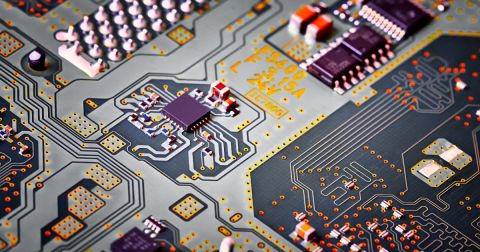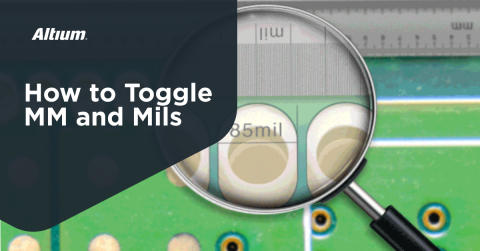The Best PCB Routing Software Helps You to Finish Your Design on Time
When my first child was young, my wife and I didn’t have a lot of income. It took everything that we had to pay the rent and put food on the table. When it came time for Christmas I really wanted to buy my boy a present, but I didn’t have any extra money to spend. That was a really humbling moment when I couldn’t even afford an extra couple of bucks for a toy.
Fortunately, my wife had been saving money all along in preparation for Christmas. When it came down to the wire, she was prepared and had some extra cash ready for presents. Christmas was saved, we were both happy, and my son still spent more time playing with the box than the toy. Sigh.
The point is though is that she was prepared. When we needed the help, she had something waiting in the wings and ready to use. I have found in designing printed circuit boards that it is also a good idea to have something waiting in the wings for when I need it too. There have been many times when a deadline was looming and it seemed like there wasn’t any way that I could get the job done in time. Fortunately, though, my PCB routing software has been able to provide me with some extra help to get me out of the bind. Here are some of those tools that I keep “waiting in the wings” that have helped me to be prepared when I needed it.
Routing Constraints are Worth the Effort to Set Up
One of the first things that you should do is to make sure that your routing constraints are fully set up. Constraints with all their details can be a pain to set up, and I know a lot of designers that won’t put a lot of effort into them. They would rather change their routing widths on the fly instead of putting the effort into setting up their layout tools to do that for them.
The problem is that they may miss a specific trace width requirement, or violate a minimum clearance rule. As you know, this could cause problems with manufacturing or with signal integrity. There is also another aspect to constraints that often gets overlooked. In dense areas of routing, such as traces coming out of a BGA pattern, your constraints can often be relaxed. Your constraints can help you by automatically adjusting the routing widths and spacing requirements for these areas so that you don’t have to make those changes yourself.
Analysis Tools can Take the Guesswork Out of Layout
A debate about how to best route a signal or layout the power network is another way your design schedule can get hurt. Fortunately, there are analysis tools available now to help the designer lay out the circuit correctly the first time. Take the power distribution on your PCB for example.
We used to make our best guess as to how the power network should be laid out on a PCB design. Then as power distribution changes were requested by the design, the schedule would start to slip. There were even times when the failure of prototype boards due to power distribution problems would force another design cycle.
With the ability now to analyze the power distribution on your PCB, you can see in real-time how the power delivery is going to look like. By running the in layout, you will be able to find issues that need to be corrected immediately. This will save you from having to go through as many time-consuming change requests, or expensive prototype board builds.
The Best PCB Routing Software Gives you Different Auto Routing Options
When I first started designing, everything was hand routed. Early autorouters were difficult to use and required a lot of manual trace routing cleanup. Now though, there are different types of auto routing tools that you can use. Here’s a few of them:
Batch Autorouter: This tool has grown and evolved to become a powerful ally. It is especially useful for the following:
- Non-critical nets. When you have a lot of miscellaneous nets on your board at the end of a design, a batch autorouter is a great way to quickly finish them up.
- Routing cleanup. Using the autorouter’s cleanup routines is very helpful. You will be able to clean up odd routing that was created by both the autorouter, and your own manual routing.
Auto Interactive Router: This tool is different from the traditional batch autorouter in that it doesn’t completely auto route the PCB for you. Instead, it will route a net or a group of nets that you select either on its own or in the direction that you dictate by drawing a path for it to follow. This tool can be incredibly helpful in the following ways:
- Point-to-point routing. You can very quickly route point-to-point nets by selecting them and engaging the auto interactive router. Since this router operates on the rules and constraints already set up in your design, it is a very easy point and click operation.
- Bus routing. For a, manually routing a bus can be a very time consuming and complex task, and a batch autorouter will often make a mess of it. For the auto interactive router though, bus routing is very quick and efficient. You select the nets that you want to be routed, draw a path for the router to follow, and it will route the traces for you.
When I’m up against a deadline, these are some of the tools that I have found are most effective to have “waiting in the wings” for me. By making sure that your constraints are fully set up, and that you use the analyzers and autorouters that are available with your tools, you can help yourself to beat the clock as well.
PCB design software, like Altium Designer®, has these features that we’ve been talking about. A full set of design constraints, a power delivery network (), and a suite of powerful auto routing tools are just some of what Altium has waiting in the wings for you.
Would you like to find out more about how Altium can help you to keep your design schedules on time with their best PCB routing software? Talk to an expert at Altium.










